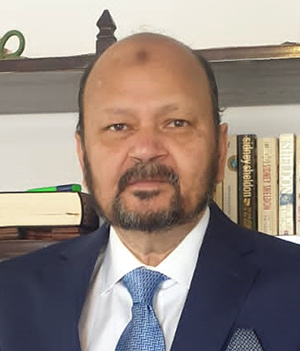Since the inception of Pakistan, migrants have been organising collectively in different urban conditions in Karachi. Unsustainable population growth, environmental challenges, unregulated profiteering, and political mischief make the discussion and conceptualisation of Karachi 2.0 a much more complex task. Our contributors in the following pages argue that we should urgently talk about urbanisation processes and highlight density and complexity as differentiation forces. This expanded view of Karachi will play an active role in shaping and rethinking architecture and design practices. We must reimagine Karachi through the contemporary urban milieu — urbanity conditioned by the information society’s specificities, sustainable awareness, globalised knowledge, and leisure.
Pakistan’s economy in general and Karachi, in particular, is suffering. We are not creating enough decent-paying jobs; middle-class incomes are lagging; and we face tough economic competition throughout the world, especially from other developing nations. We have become a divided nation and a “me-first” society. For many Pakistanis, ethical principles like responsibility and integrity are fading, and people seem concerned only about themselves — not for the community or the country as a whole.
Too many of us are unwilling to compromise or work together to solve problems. Our country is becoming less fair. We say this is the land of equal opportunity, but too many people who work hard and play by the rules are slipping out of the middle class. And too many poor youngsters never get a fair chance in the first place.
These are all profoundly complicated, multifaceted problems, and no one pretends that anyone alone can solve them. Families, public schools, government, business, philanthropy, and other sectors also need to make changes to address them. But higher education could play a more decisive role in these areas.
There are 44 HEC recognized universities and degree-awarding institutions in Karachi.
The diverse landscape of Karachi’s education system — including public and private universities, smaller independent colleges, for-profit vocational schools, and others — already serves many critical social purposes. But we should ask this fundamental question: How should education help us create the society we want in Karachi and the rest of Pakistan?
The chief mission for colleges and universities — including vocational colleges — is to ensure that Pakistan’s economy gains a competitive edge in an increasingly challenging global marketplace, and that means leading in science and technology. We need to set higher standards for our young people and promote and reward excellence in these fields and others. Karachiites have to be ready and willing to compete with the best in the world. Many people say our collective prosperity and standard of living depend on it.
Gaining regional leadership in science and technology won’t do much to help most Karachiites unless we have economic policies that support a robust middle class and offer wide opportunities. It could end up just enriching the people who are already doing well and giving business and economic interests too much influence in higher education. Many worry that requiring more math and science will discourage some students, especially those whose interests lie elsewhere, making it harder for them to compete in college. For example, a culture of competition, which prizes excellence and high standards, could lead us to neglect our obligation to students who aren’t as accomplished or determined. Moreover, without the right values to guide us, technology and economic growth can do as much harm as good.

Editor, Narratives



